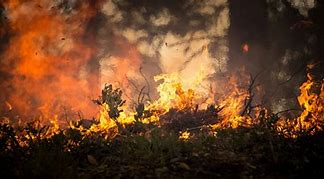
Hot Topics
Are They Aware?
January 16, 2025
 As the tragic fires in Los Angeles have brought into sharp focus, significant and devastating natural disasters are a way of life in the U.S. And, whether it’s hurricanes, tornados, earthquakes, blizzards, or wildfires, radio is ALWAYS there.
As the tragic fires in Los Angeles have brought into sharp focus, significant and devastating natural disasters are a way of life in the U.S. And, whether it’s hurricanes, tornados, earthquakes, blizzards, or wildfires, radio is ALWAYS there.
Radio – and more importantly radio people – are always at the forefront in providing critical, timely, and, often, life-saving information. Radio is also instrumental in the aftermath of any natural disaster. From clean up to fundraising, the power of radio makes a difference.
We all know this because we work in radio. The question that arises is: are “they” aware of the essential information radio delivers?
When disaster strikes, where do most people get their initial alerts from? Their smartphone. There is nothing wrong with that except when the power goes out and the cell towers go dark. It is rare that a radio station goes dark. Rarer still that the entire market goes down. Some station somewhere is broadcasting crucial information in real time.
So, radio delivers. But there are a couple of roadblocks:
We know that the majority of radio listening happens in the car.
We also know that in PPM markets roughly 30% or so of the 6+ households in any survey do NOT have a radio in their home. Sure, they can connect to you through a smart speaker, but see the power outage referenced above. (Chances are this is also true in diary markets.)
So how do we let “them” know that this essential and immediate service is available when they need it (and that they don’t need a subscription)?
I would say marketing, but that’s a non-starter in most cases.
Maybe we teach usage.
“When the power goes out, stay safe and remember that your car radio connects you to everything you need to know when…”
“No phone? No internet? Radio is always there when you need it…”
OK, not the most compelling lines but you get the point. This is a bit of preaching to the choir as the people who hear these messages are already listening. We need to reach beyond our circle of friends. We need to let the public know that radio is an essential service. This is especially true for those under the age of 40.
Radio will always be there when the need is greatest. That’s just what we do. A little public reminder that reaches outside of our walled garden would broaden our reach and increase our awareness.
How can we make this happen?
-Steve Allan, Programming Research Consultant
Comments